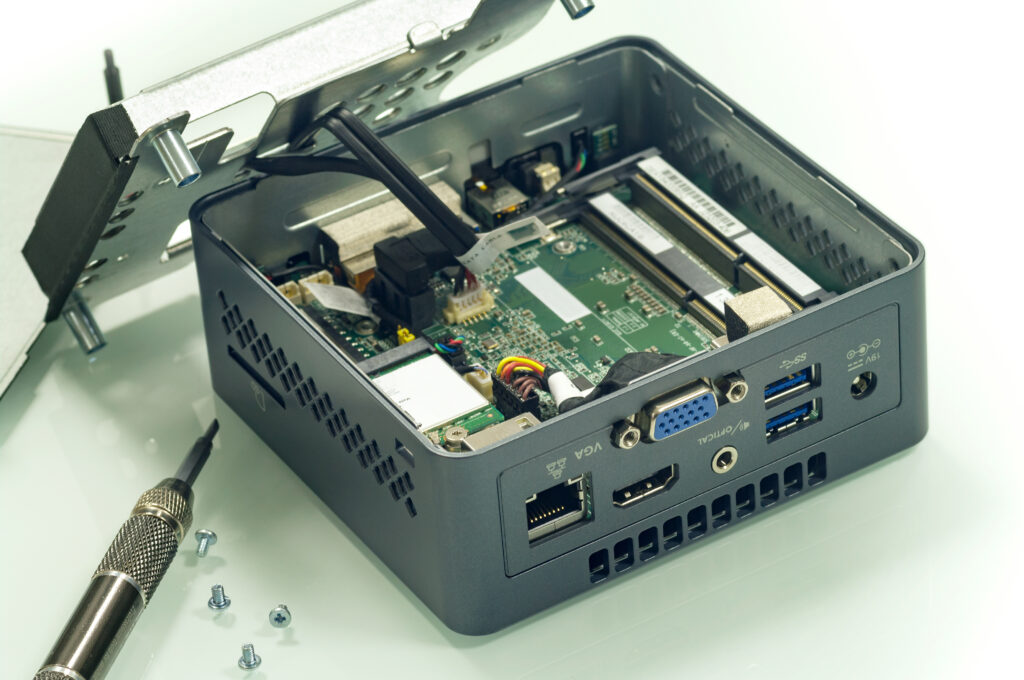Mini-PCs and Single Board Computers (SBCs) have exploded in popularity since the original Raspberry Pi and Intel NUC debuted in 2012. These tiny desktops are powerful, incredibly versatile, and often come with a shockingly low price tag.
However, the rapid growth of non-commercial brands, like BeeLink and AceMagics,has created a clear dilemma: these mini-PCs are cheap, but they come with serious concerns about pre-installed malware, questionable component quality, and non-existent support. Major manufacturers offer reliable, repairable, branded Mini Desktops (MDs), but they are far more costly.
The hot topic on the Spiceworks Community now is: Would you ever recommend a non-commercial name brand mini-PC or buy one for yourself for tinkering?
The Power of the Pocket-Sized PC
Most IT professionals who use these systems at home are blown away by the power and value, particularly from x86 mini-PCs (like those running Intel N-series chips). They’re replacing older desktops and even outperforming some previous-generation homelab setups.
- Chris Kelly: “I replaced my mother-in-law’s older desktop computer (first-gen i7) with a beelink N100, and not only does it do everything she needs… it takes up a 1/10th of the space, draws 1/10th of the power, makes practically zero noise, and performs as-good or better than what she was using before.”
- ericesparza: “We use Bee Link mini pcs in our office for most people. they are remarkably reliable and powerful for the size… the bee links have sold me they have a place.”
- MachoManRandall: “I think the best thing about Mini-PCs is that they are very user friendly since it just Windows or Linux and can be used for plenty of fun small projects. I’ve turned quite a few units into home media centers for people.”
- The Data Master: “I have one that has a powerful i5 laptop chip in it and it replaced a Ryzen 7 5000 desktop series CPU for encoding and other heavy lifting projects I often have.”
Corporate Caution and Security Risks
Despite the enthusiasm for personal use, the professional caution around non-commercial brands is extremely high. The risks associated with durability, lack of long-term support, and, most importantly, security are too great for a business environment.
- The Data Master: “I still do not trust recommending this to family and friends and I would never purchase these in an office environment. Not only am I worried about what is preloaded on these and what could be potentially embedded in the firmware… but also the durability is just not there.”
- aJason: “I would not buy a non-commercial name brand mini-PC for office use. However, that is not mini-PC exclusive – I typically wouldn’t buy a non-commerical brand tower desktop PC or a non-commercial brand laptop for office use either.”
- Ed Rubin: “Our general rule is name brand PCs with warranty to reduce support load… I’d consider smaller stuff like a Raspberry Pi for specialist applications, but not as a production PC, the same with off brand NUCs.”
Ultimately, the community has decided that while the raw power and price of no-name mini-PCs make them excellent for homelabs and media centers, the professional world still relies on the warranty, support, and peace of mind that comes with major brands.What’s your take? Would you ever trust a non-commercial mini-PC with your professional data? Head over to the Spiceworks Community and join the discussion!
